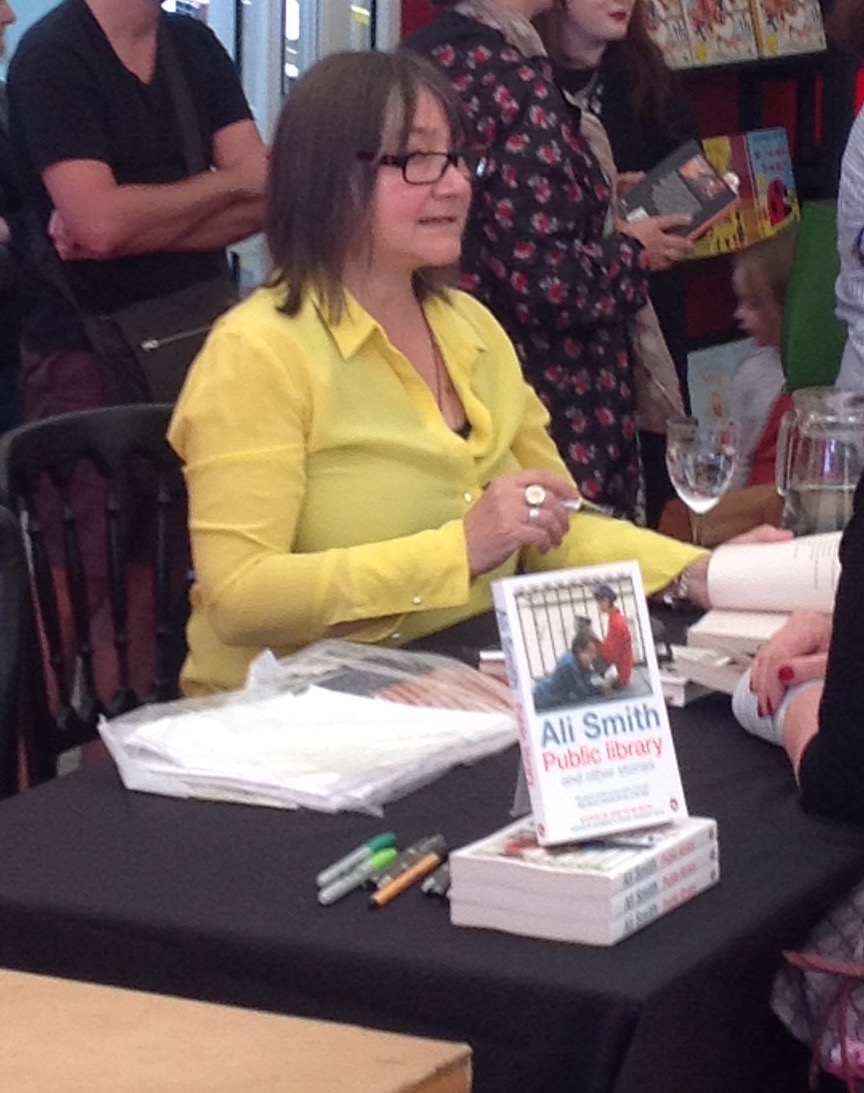Inspiring Older Readers
 posted on 18 Aug 2016
posted on 18 Aug 2016
What makes a good author interview?
I’ve just come back from Edinburgh where I was privileged to be at one of the literature festival’s first author interviews when Jackie Kay introduced the hugely talented Ali Smith. The allocated hour flew past despite the ubiquitous, horribly uncomfortable temporary event seating which always leaves you with a numb bum and cramps you with an impossibly tiny amount of leg room. In this case however the infectious enthusiasm, intelligence and good nature of Jackie Kay was the ideal foil for Smith who was witty, understated and seemingly had endless patience ( her book signing event after the talk must have lasted the best part of two hours). Most impressively, Smith also read extensively from an unpublished draft of her forthcoming new novel – due to be entitled ‘Autumn’ and the first of a sequence that will cover all the seasons. She read well and with genuine engagement and at the end she dealt well with a series of audience questions that were uncharacteristically perceptive.
Coming away from the event we got to talking about what for us makes a good author interview at these literary festivals and just what it was that made this session with Ali Smith one of the best we’ve been at. It seems to me there are certain indispensible things that have to come together:
· Firstly, the author has to want to be there and have something to say. There is nothing more infuriating than paying to see an author who is simply going through the motions in order to fulfil a publisher obligation and clearly would rather be somewhere else. This happens more frequently than you’d want but when an author is clearly irascible and in a bad mood, the event can be positively excruciating – I was once at an event with the late Doris Lessing who could only have been described as plain obnoxious.
· Secondly, there has to be a knowledgeable, sympathetic and engaged interviewer. In my view the interviewer is almost as important to know in advance as the interviewee because even the very best authors can be made to look hopeless if they are not given the right showcase for their talents. I once witnessed a very high profile interviewer who was so disengaged with the process that they were taking less than discreet looks at their mobile phone at fairly regular intervals.
· Thirdly, it helps to have evidence that some thought has been given to the line of questioning that is going to take place. Nothing is more infuriating than the feeling that the interviewer has made up their questions two minutes before they go on stage. Pointless questions that meander around and reveal nothing are the bane of the literary interview circuit.
· Fourthly, you really want the author to read from their book(s) – there is nothing quite like a reading from the horse’s mouth as it were. Ali Smith did that superbly and I’d also like to acknowledge a similar triumph at previous events featuring Alan Garner, Seamus Heaney and Roddy Doyle.
· Finally, you really have to hope that not too much time is given over to audience questions – but if there are going to be several contributions you have to pray that they are at least genuine, intelligent questions. All too often the person ‘asking the question’ is doing no such thing – they simply want to show off and embark on some tedious ramble to which the only legitimate response can be ‘Oh please, do shut up!’.
When an author event works it can be a real treat and provide insights into the way an author works, the way they construct their writing and the ideas that lie behind it. I’ve also found that when they are good they can inspire you to go back to books you’ve never tried or just forgotten about. However, when they don’t work they are a real waste of time and somehow more frustrating than not seeing them in the first place – shattering illusions along the way.
So, hats off to Ali Smith and Jackie Kay – you nailed this one!
Terry Potter
August 2016